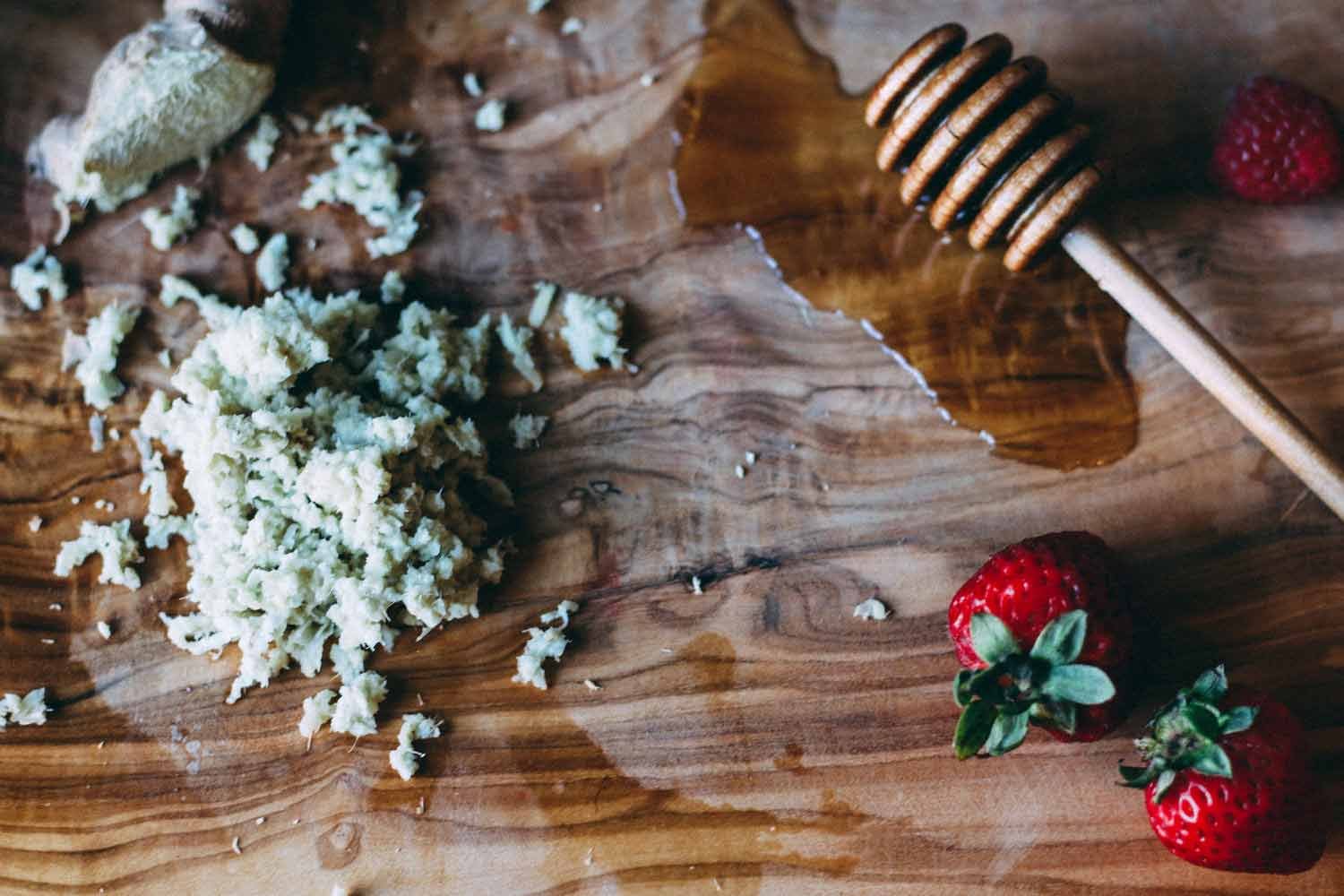Jun tea is a delightful fermented tonic that is cultured with honey in a base of green tea. It is known as the "champagne of Kombucha" because of its soft, light flavor and plentiful carbonation. It differs from Kombucha in that it cultures best with green tea and raw honey, while Kombucha thrives in black tea and sugar. It is truly a delicacy.
The history and origins of Jun tea are truly mysterious. Some speculate that this close member of the Kombucha family was a spiritual elixir originating in regions of northern China and Tibet. Others, however, think that this is a more recent deviation from kombucha. Food writer Sandor Katz writes this about Jun,
"The lack of credible information on Jun leads me to the conclusion that it is a relatively recent divergence from the Kombucha family tree. Some websites claim that it comes from Tibet, where it has been made for 1,000 years; unfortunately, books on Tibetan food, and even a specialized book on Himalayan ferments, contain no mention of it. Whether or not it has a 1,000-year-old history, it is quite delicious."
Jun tea is a perfect choice for families who are concerned about consuming trace amounts of sugar found in regular Kombucha. Even though the microbes consume the majority of the sweetener in both regular Kombucha and Jun tea, there are still minute amounts of the sweetener in the end product. For most, this is not a concern, but can be for those who are very sensitive to refined sugars. The addition of honey instead of sugar also offers the highly medicinal qualities of raw honey as well as a deeper complexity of flavor.
Pictured below is a Jun tea SCOBY, which stands for symbiotic colony of bacteria and yeast. These organisms are responsible for turning sweet tea into a fermented beverage high in probiotics, enzymes, vitamins such as B and C, and some amino acids. After time, Jun SCOBYs produce new SCOBYs which can be used in your home fermentation, given to a friend, or even consumed if desired. Similar to other ferments, the beneficial microbes present in Jun help give the gut and immune system a boost.
Ingredients
Approximately 2-4 cups filtered water
Jun SCOBY
1 cup raw honey
1 cup plain Jun from previous batch
4 teaspoons organic green tea
Filtered Water
Bring 2-4 cups of water to a boil. Once the water has come to a boil, remove the pot from the burner and add the loose tea or teabags and steep for 5 to 10 minutes. I allow my tea to steep in the pan on top of the stove away from the heat. Once steeped, remove your teabags or strain loose tea into another vessel such as a Pyrex liquid measuring cup. Allow the tea to cool to about 100-115 degrees. It is important that you do not add the raw honey when the tea is above 115 degrees as it will kill the beneficial enzymes within the honey needed for proper culturing. Stir until well incorporated.
In a one gallon jar, add your sweetened tea, Jun starter, and scoby. Then fill with filtered water up to the "shoulders" of the jar. Cover with a fabric scrap or cheese cloth secured with a rubber band. Set the vessel in a dark place or wrap it in a towel to keep out light. Allow to ferment for roughly 3 days. Stick a straw beneath the scoby to sample the flavor if needed. In my home, it takes 3 days in the summer and 4 days in the winter because of the differences in temperature. Ideally, jun tea ferments best between 68 and 77 degrees fahrenheit.
Once the fermentation process is complete, reserve one cup of Jun that will be used as a starter as well as the scoby for your next batch. At this point, the Jun is ready to drink and can be stored in the refrigerator in mason jars or glass bottles with tightly fitting lids. If you wish to flavor your Jun tea, you can do a second ferment by adding flavorings to your brewed Jun. To do this, add your flavorings of choice to a bottle and pour over your brewed Jun leaving little headspace. Cover tightly with a lid. Allow to sit at room temperature and ferment for another day, or until your desired flavor has been achieved. Pressure and natural carbonation can build up during this second ferment, it is best to open over the sink just in case it overflows due to the build up of pressure.




